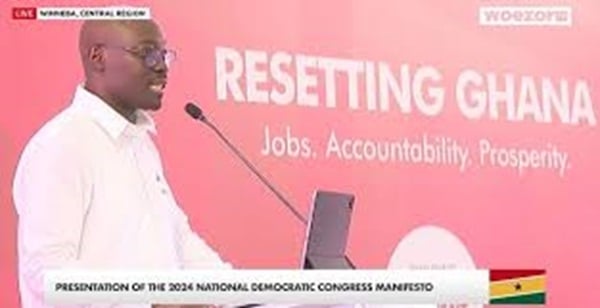Dr. Mohammed Amin Adam, a prominent figure in Ghanaian politics and the Ranking Member on the Finance Committee of Parliament, has leveled serious accusations against the current government, alleging the misappropriation of funds specifically earmarked for the ambitious Agenda 111 hospital projects. This initiative, designed to significantly bolster healthcare infrastructure across the country, has become a point of contention, with Dr. Adam expressing deep concern over the government’s perceived lack of commitment and transparency in its execution. His accusations, delivered during the parliamentary approval process for the 2025 budget statement, paint a picture of diverted funds and broken promises, casting a shadow over the future of this crucial healthcare undertaking.
The core of Dr. Adam’s argument centers on the government’s alleged failure to honor its financial obligations to the Agenda 111 projects. He points to the government’s initial pledge to continue and complete all ongoing projects, including this vital healthcare initiative. However, he contends that, despite these assurances, funds allocated for the construction and equipping of these hospitals are being diverted to other, unspecified uses. This diversion, he argues, poses a significant threat to the timely completion of the hospitals, delaying the much-needed improvement in healthcare access for communities across Ghana. This alleged breach of trust, according to Dr. Adam, undermines public confidence in the government’s ability to deliver on its promises and raises serious questions about the true priority given to healthcare infrastructure development.
Dr. Adam’s critique extends to the Minister for Finance’s suggestion that the Agenda 111 projects would be realigned for funding under the Big Push Initiative. He argues that this proposal is flawed, as the Big Push Initiative itself is facing a significant funding shortfall of $1.7 billion this year. This raises further questions about the feasibility of adequately funding the hospital projects through this alternative mechanism. The lack of transparency surrounding the allocation of funds and the government’s justification for the proposed realignment has amplified concerns about the future of Agenda 111. Dr. Adam demands a clear explanation from the government regarding the destination of the diverted funds and the rationale behind the proposed shift in funding strategy.
The implications of these alleged financial irregularities are far-reaching. The Agenda 111 projects represent a critical investment in Ghana’s healthcare system, aiming to address the significant disparities in access to quality healthcare services across the country. The construction of these new hospitals is intended to alleviate pressure on existing facilities, improve healthcare delivery, and bring essential medical services closer to communities in need. The alleged diversion of funds, therefore, not only jeopardizes the timely completion of these vital projects but also undermines the government’s commitment to improving the health and well-being of its citizens.
Dr. Adam’s accusations raise fundamental questions about accountability and transparency in the management of public funds. He calls for immediate action to rectify the situation, urging the government to restore the diverted funds to their intended purpose and ensure the completion of the Agenda 111 hospitals. His call for transparency underscores the importance of public scrutiny in ensuring that government resources are utilized effectively and efficiently for the benefit of all citizens. The future of the Agenda 111 projects, and indeed the government’s credibility in delivering on its healthcare promises, hangs in the balance.
The controversy surrounding the Agenda 111 projects highlights the critical need for robust oversight mechanisms to ensure the proper allocation and utilization of public funds. Dr. Adam’s outspoken criticism serves as a stark reminder of the importance of holding those in power accountable for their actions and ensuring that public resources are directed towards their intended purposes. The ongoing debate over the funding of these vital healthcare projects underscores the need for transparency and open communication between the government and the public, fostering trust and ensuring that crucial investments in healthcare infrastructure are not jeopardized by financial mismanagement.


